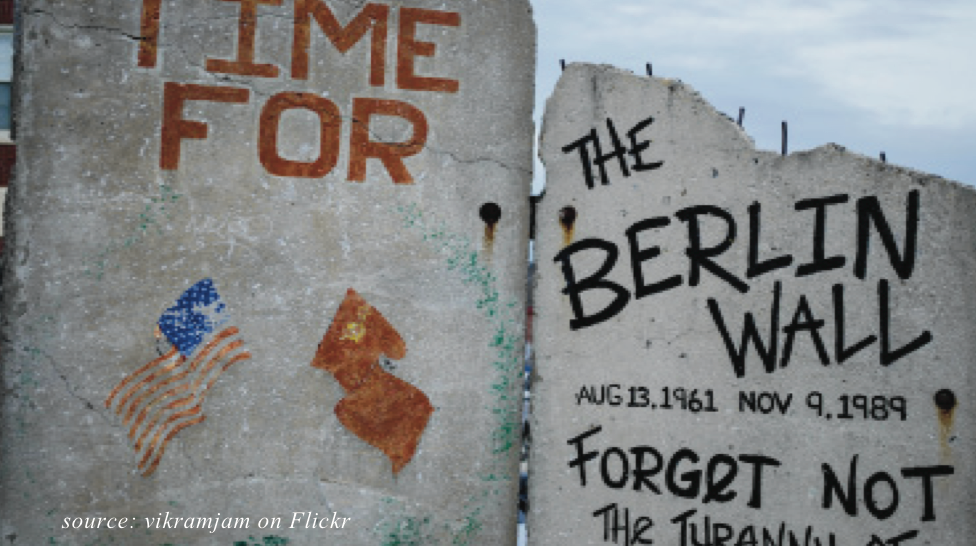Remember and respect the Wall

Portion of Berlin wall in Portland, OR with graffiti resembling Tombstone markings. (Photo credit: vikramjam on Flickr)
By Stephany Harrington, Staff Writer
As Gettysburg College students we are constantly surrounded by living history. We live adjacent to one of the most famous battlegrounds in the United States. Monuments line our campus and the Civil War Institute has an important presence. The battle and Lincoln’s legendary Gettysburg Address are frequently discussed here, either amongst students or in an attempt to attract prospective students. However tiring it might be to always hear about the Civil War, I realize it is important to recognize these significant events. I found it especially refreshing that the campus decided to recognize an international historical event this week.
Twenty-five years ago, the USSR was rapidly losing power; so much so that they lost control of their satellite states. The border controls that restricted people in the Eastern Bloc from travelling were loosened and people started to flood into the West. When the German Democratic Republic realized that East Germans were fleeing in great numbers into the West, they understood that their wall was no longer effective.
The Berlin Wall was intended to prevent East Germans from escaping to the West, but it suddenly lost its purpose. The people from both East and West climbed the wall and began to dismantle it piece by piece. On November 9, 1989, celebrations took place all night because the wall was finally open.
On a national level this event was a watershed moment in German history. After being devastated by the Second World War, the country was completely separated. After almost three decades they had the opportunity to be reunited again. Some families could finally be together once more and a new national identity had begun to be formed. There are so many reasons to remember the fall of the wall, but it is almost impossible to imagine how the wall affected the everyday lives of Germans, especially Berliners. This year several organizations at Gettysburg are recognizing this historic event, including of course German Studies, which is my second major.
After living in Berlin for four months, I am glad that the campus understands the significance of the anniversary. I frequently crossed the borders where the wall once stood and was always struck that it used to be there. It always baffled me that the city I knew was completely different not so many years ago. In order to provide some sort of understanding of the wall, German Studies and other departments installed a representation of the wall using cardboard boxes in Musselman Library. They provided markers so we can write our own graffiti on it and set up a cart of books about the Berlin Wall.
When I heard that they would allow students to write their own graffiti, I instantly dreaded what people would write or draw. I feared that some would draw or write inappropriate things because they would think that it was all just a joke and that they do not have to take it seriously. Although I am all for free expression, I do think that people should be cautious about what they put on this wall. Because although it is cardboard and it is just a representation, the event should not be trivialized. The wall haunted Berlin for almost thirty years and some of its physical and psychological remnants still remain.
I have already written a piece of graffiti on this wall and I encourage other to as well. But if you do, please respect the Wall.
